The $10 Billion Lawsuit That Could Reshape Conservative Media Power
The relationship between Donald Trump and Rupert Murdoch has always been complicated.-Rafael Benavente
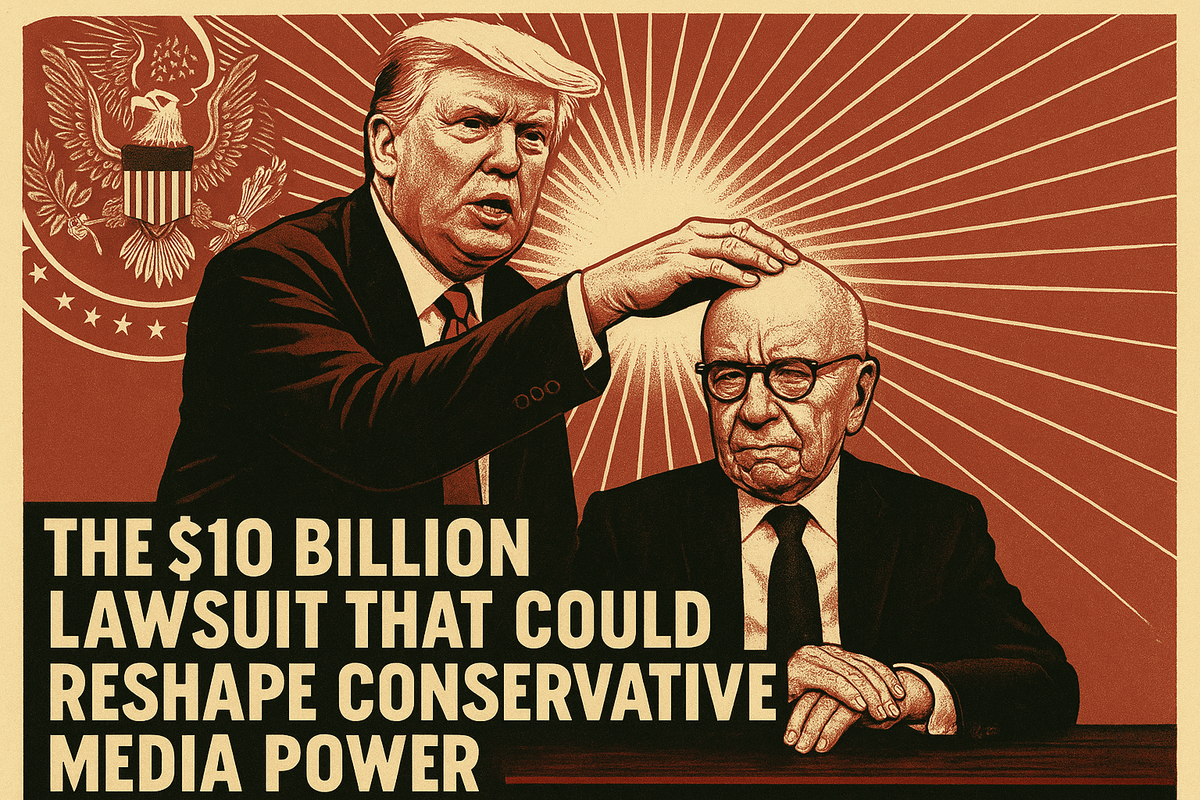
By Rafael Benavente
Trump vs. Murdoch: Why the Former President Holds the Upper Hand in a Billion-Dollar Media Feud
Introduction
The relationship between Donald Trump and Rupert Murdoch has always been complicated. At times, the two men have appeared to operate as political and media partners, with Murdoch’s media empire—most notably Fox News, the New York Post, and the Wall Street Journal—providing Trump with essential coverage and amplification. At other times, Murdoch and his outlets have been critical, even dismissive, of Trump.
That volatile dynamic erupted again in July 2025 when the Wall Street Journal published a report alleging that Trump had sent Jeffrey Epstein a risqué, illustrated birthday letter for his 50th birthday. The Journal’s investigative reporting not only reignited questions about Trump’s ties to Epstein but also set the stage for an extraordinary escalation: Trump responded by filing a $10 billion defamation lawsuit against Murdoch, Dow Jones, and the Journal’s reporters.
This lawsuit is not only one of the largest defamation claims in U.S. history; it is also the first time a sitting president has directly sued a major media organization.
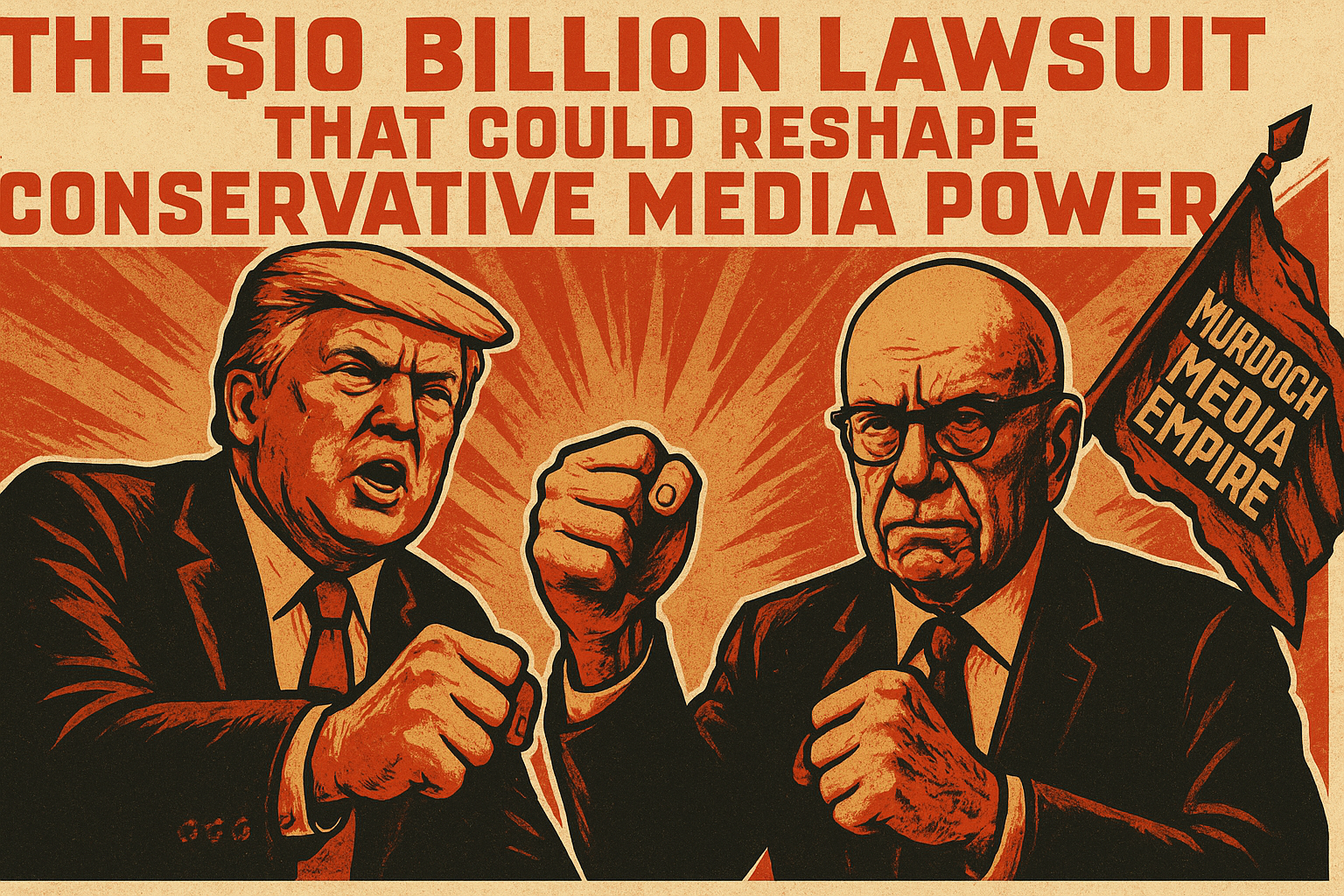
The History of a Volatile Alliance
Early Tensions: 2015–2016
When Trump first launched his presidential bid in 2015, Rupert Murdoch was skeptical. Reports at the time suggested Murdoch directed Fox News moderators to take a tougher stance against Trump in the early Republican debates. The New York Post, also owned by Murdoch’s News Corp, occasionally portrayed Trump in an unflattering light.
Yet as Trump surged to the top of Republican polls, Murdoch adjusted. Fox News’ audience wanted Trump—and Murdoch recognized that alienating them would hurt business. By the time Trump won the presidency in 2016, Murdoch and Trump had formed a pragmatic alliance.
The Arizona Call and the 2020 Fallout
The relationship soured again on Election Night 2020, when Fox News became the first major outlet to call Arizona for Joe Biden. Trump and his allies erupted in anger, arguing that the call undermined his claims of victory. To Trump, Murdoch had betrayed him at the most critical moment.
From then on, Fox News’ balancing act—between supporting Trump and maintaining journalistic credibility—became increasingly strained.
The Post-Presidency Reset
Despite these tensions, by 2023 and 2024 Trump and Murdoch were again in communication. In February 2025, Murdoch reportedly visited Trump in the Oval Office, signaling a thaw. By July, Trump even praised Murdoch publicly as “an amazing guy,” while Murdoch looked on approvingly. The détente, however, was short-lived.
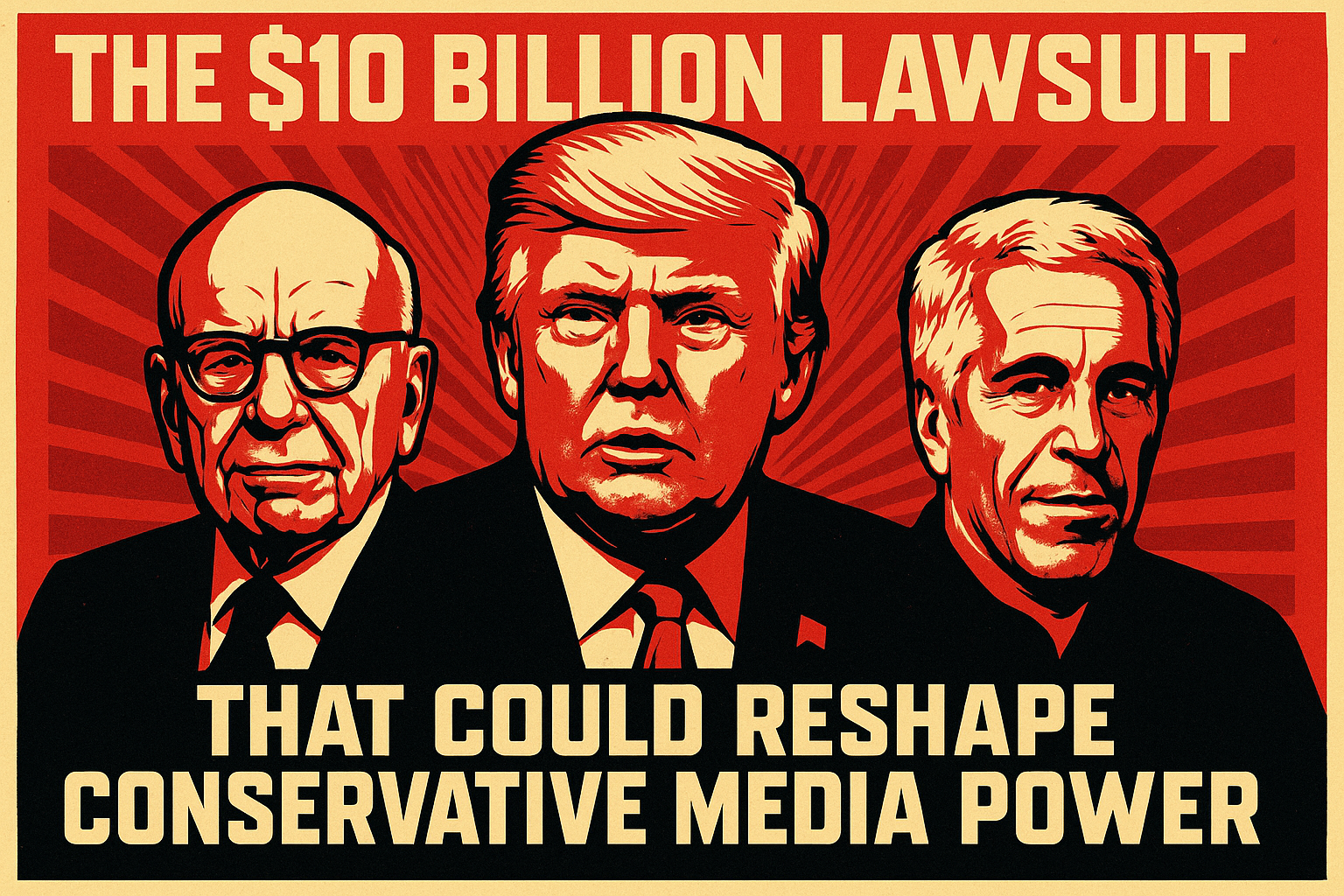
The Epstein Flashpoint
The immediate trigger of the current crisis was a Wall Street Journal scoop alleging that Trump had sent Jeffrey Epstein a risqué, illustrated birthday letter for his 50th birthday. The story, if true, would have fueled longstanding speculation about Trump’s proximity to Epstein.
Trump denied the report outright, labeling it “fake news,” and within days filed a $10 billion defamation lawsuit targeting Murdoch, Dow Jones, and the Journal’s reporters.
The lawsuit is extraordinary for several reasons:
- Historic Precedent: No sitting U.S. president has ever sued a media company of this size and stature while in office.
- Financial Scale: $10 billion is an astronomical number, signaling Trump’s intent to not only clear his name but punish Murdoch’s empire.
- Political Symbolism: The suit embodies Trump’s war on “fake news,” offering his supporters a concrete example of him fighting back.
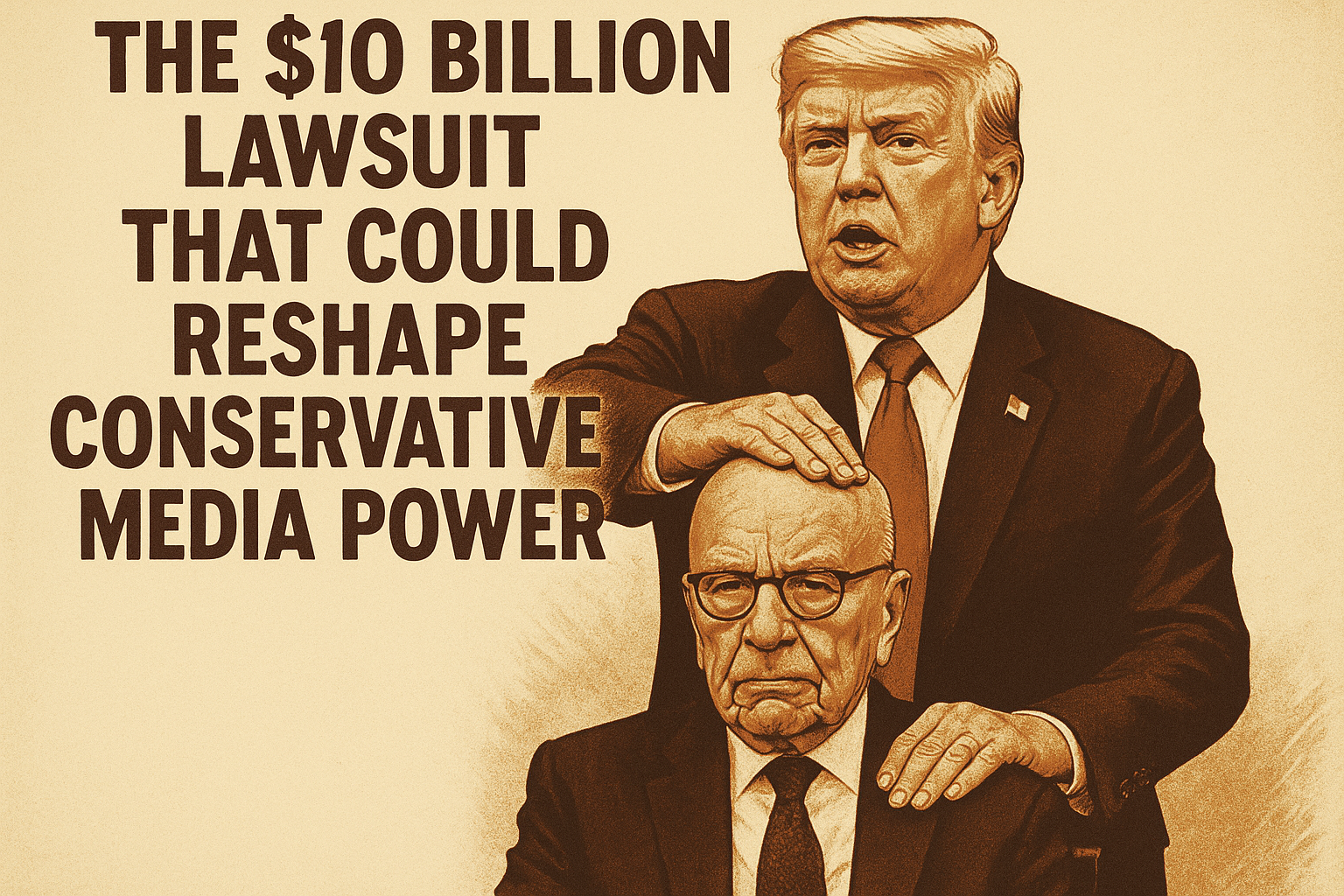
Why Trump Holds the Upper Hand
1. The Power of the Political Base
Trump’s supporters see the lawsuit as proof that he is standing up to entrenched media interests. Whether or not the lawsuit succeeds legally, it energizes his base. Murdoch, on the other hand, risks alienating a large portion of his audience if his outlets are perceived as attacking Trump.
In the business of news, audience loyalty is everything. Fox News, the Post, and the Journal may present different editorial tones, but their readerships overlap with conservative America. If Trump tells his supporters to distrust Murdoch outlets, Murdoch risks erosion of market share and credibility among his core consumers.
2. Murdoch’s Business Dilemma
Murdoch faces a strategic bind:
- Uphold journalistic independence and defend the Wall Street Journal’s reporting, even at the risk of Trump’s wrath.
- Or, soften the stance to preserve his empire’s conservative audience and avoid a damaging fracture.
Either way, Trump controls the leverage point: his ability to mobilize millions of voters and viewers against Murdoch.
3. Litigation as Leverage
Trump’s $10 billion claim is unlikely to be awarded in full. However, the lawsuit itself forces Murdoch into expensive, distracting litigation. Discovery could expose internal emails, communications, and editorial decision-making at News Corp—something Murdoch almost certainly wants to avoid after the costly Dominion Voting Systems settlement.
By suing, Trump increases pressure on Murdoch to seek compromise or risk further damage to his empire’s reputation.
4. Emotional Resonance
The Epstein story is particularly explosive. Even unfounded suggestions of ties to Epstein can be politically toxic. By going on the offensive, Trump shifts the narrative away from “what did he send?” to “how dare Murdoch smear me?” This reframing plays to Trump’s strength: turning accusations into political weapons against his adversaries.
Murdoch’s Calculus: Why He May Back Down
Rupert Murdoch has built his empire on pragmatism as much as ideology. While he has occasionally challenged Trump, he has never sustained an all-out war with him.
Why? Because Trump’s presence is good for business. Ratings, subscriptions, and engagement all spike when Trump is at the center of the news cycle. Picking a fight that alienates Trump’s supporters could cost Murdoch billions.
In that sense, the defamation lawsuit—no matter how extreme the damages claim—reminds Murdoch that his outlets rely on Trump as much as Trump relies on them.
The Bigger Picture: Media, Politics, and Power
The Trumpification of Conservative Media
Over the past decade, Trump has reshaped the conservative media landscape. Once a guest and beneficiary of Fox News, Trump has now become its competitor. Through platforms like Truth Social and his direct-to-voter style, Trump has less need for Murdoch’s megaphone.
This independence further tilts the balance of power. Trump can attack or bypass Murdoch outlets without losing access to his base. Murdoch, however, cannot afford to lose Trump’s voters as viewers and subscribers.
Legal Implications
From a legal perspective, Trump’s lawsuit faces high hurdles. Defamation law requires proving actual malice when the plaintiff is a public figure. Yet Trump does not need to win outright to achieve his goals. By dragging Murdoch into court, he reinforces his political narrative and exposes Murdoch to reputational and financial risks.
A Warning Shot to Other Media
The lawsuit also sends a message beyond Murdoch: any outlet publishing damaging allegations against Trump could face costly litigation. This may have a chilling effect, leading editors to think twice before running sensitive stories.
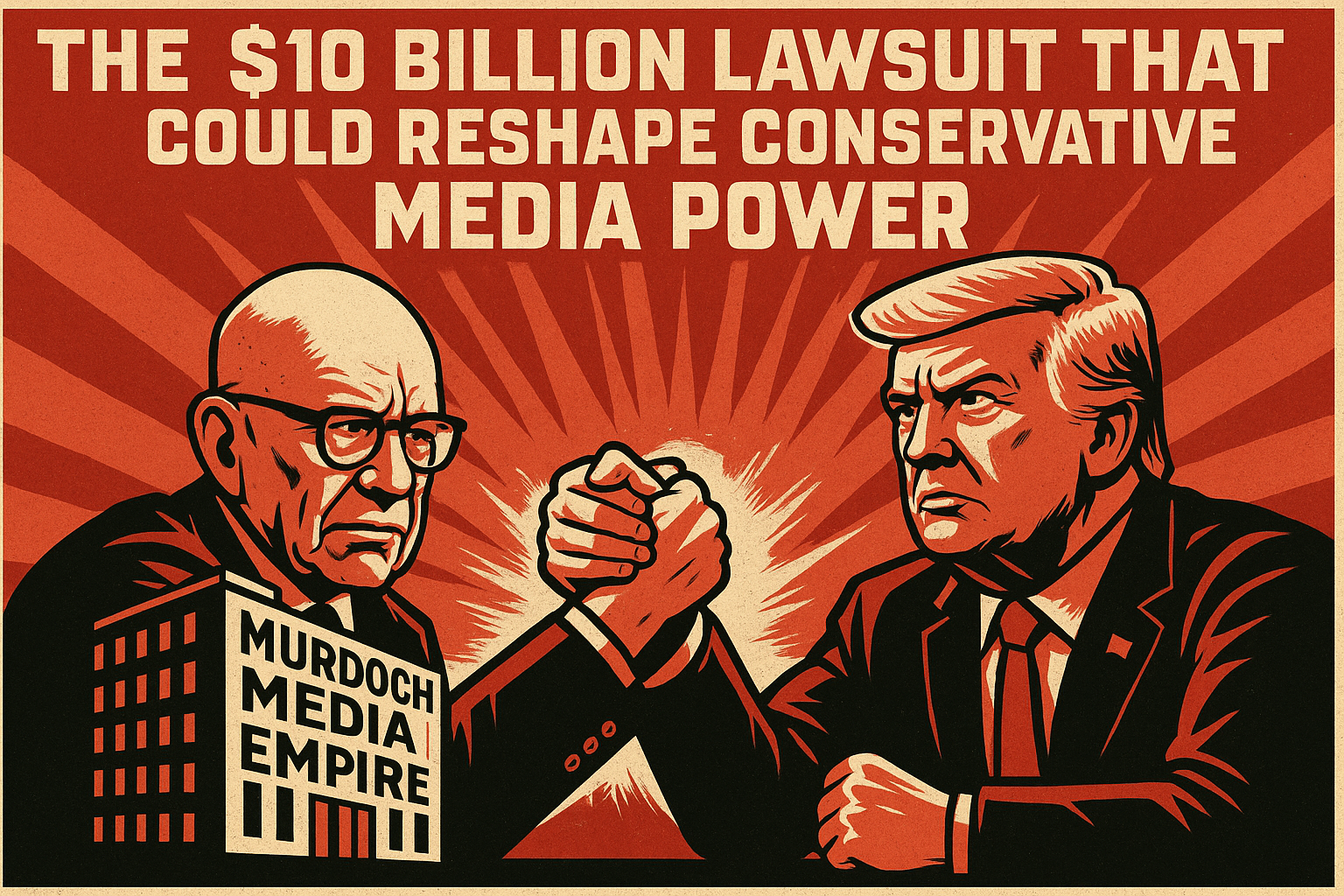
Possible Outcomes of the Feud
- Settlement: Murdoch may quietly settle the lawsuit to limit damage, possibly issuing clarifications or corrections.
- Drawn-Out Court Battle: The case could drag on, keeping Trump in the headlines and Murdoch under pressure.
- Political Realignment: Murdoch outlets may recalibrate their tone, softening coverage of Trump to reduce friction.
- Escalation: If Murdoch resists, Trump could escalate attacks, telling his supporters to boycott Murdoch’s media properties.
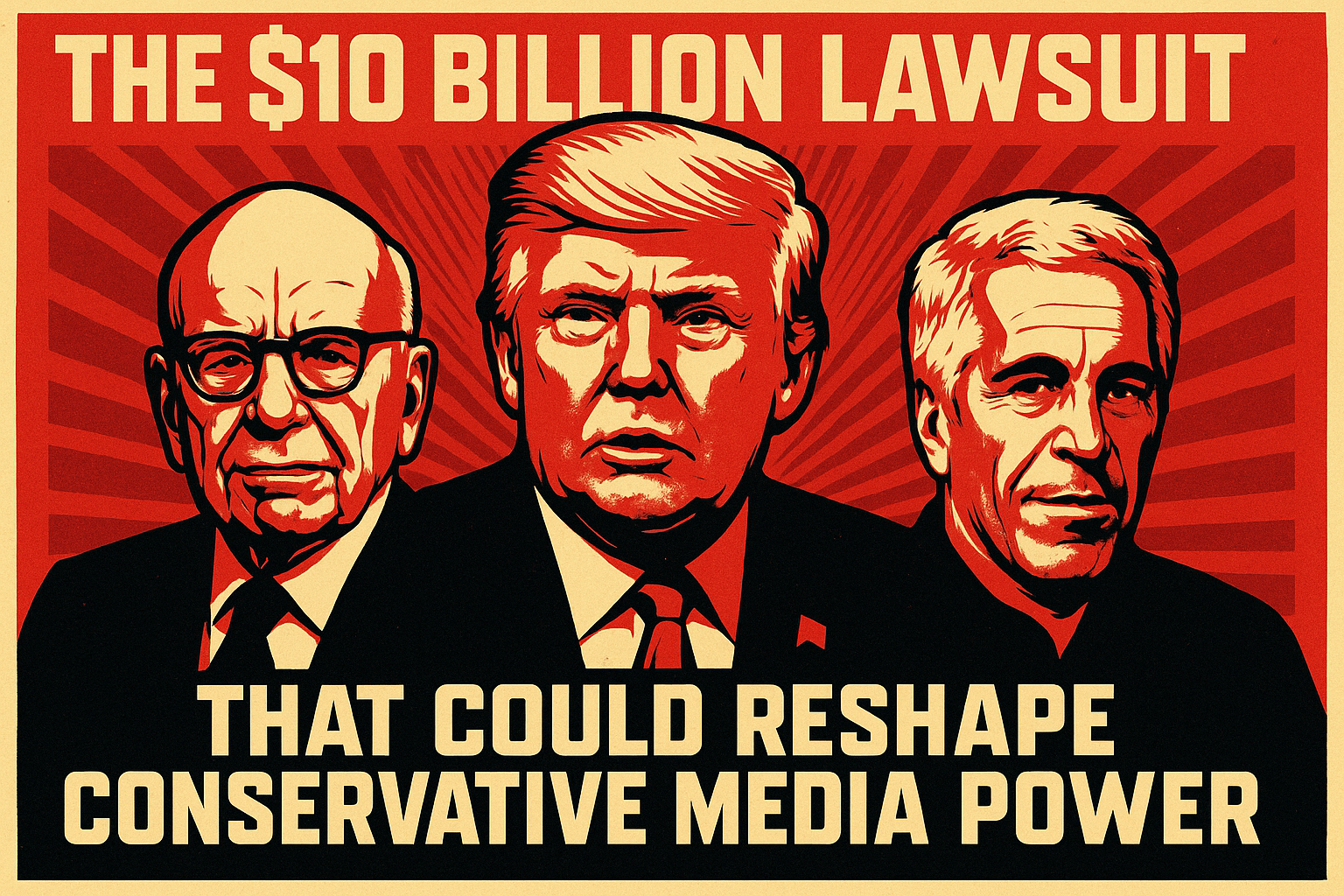
Conclusion: Why Betting Against Trump May Be Unwise
Gabriel Sherman, who has chronicled the Murdoch empire for decades, suggests that betting against Trump in this feud may be risky. History shows that Trump, despite setbacks, often finds ways to turn conflicts into fuel for his political momentum.
The $10 billion lawsuit is not merely about a disputed letter to Jeffrey Epstein. It is about power, leverage, and the future of conservative media. At the moment, Trump seems to have the stronger hand. He commands a loyal base, he can weaponize litigation for political gain, and Murdoch’s empire cannot easily afford to alienate him.
In the broader struggle between politicians and media moguls, Trump vs. Murdoch may well become the defining clash of the decade—a test of whether old media power can withstand the populist political force that Trump embodies.
By Rafael Benavente
Attribution
This blog is based on reporting and analysis from Gabriel Sherman’s article, “Why Trump Already Has an Upper Hand in His Murdoch Feud,” published by Vanity Fair on July 23, 2025. Full article available here.
other articles by Rafael Benavente, Trump and Putin in Alaska
other articles by Rafael Benavente, Global Energy 2025
other articles by Rafael Benavente, Hosing Market 2025
other articles by Rafael Benavente, CCP plans to takt Taiwan
